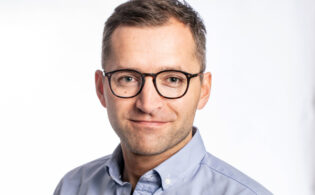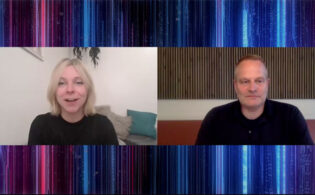It was five years ago that Beat the Channel made its debut, launching as Joko & Klaas gegen ProSieben on the German broadcaster. The show was developed and created by Florida Entertainment with the aim of “revolutionizing the studio game-show format,” according to Tim Gerhartz, managing director of Red Arrow Studios International, which sells Beat the Channel worldwide.
The format’s unique twist pits the stars of the show against their own boss and employer, their broadcasting channel. “What began as a fun and innovative concept has evolved into a channel-defining brand for ProSieben and often captures the national conversation in Germany,” Gerhartz says.
A breakout hit at launch, the show boosted ratings across every demographic, with season one attracting an average 15.6 percent market share in the key 14-to-49 demo and more than doubling the slot average. It has also captured younger-skewing audiences, with the recent season six attracting a 34.8 percent average market share this spring in the female 14-to-29 demo (a 255 percent increase on the channel average) and a 31.8 percent market share in the male 14-to-29 demo (a 195 percent increase).
“Beat the Channel features some incredible real-time watercooler stunts and games; however, the most unique element of the format is the prize of 15 minutes of live television and forfeits—a clever mechanism to extend the show across the schedule, bringing viewers back to the channel,” says Gerhartz. “These events drive national conversation, often dominating the news cycle and going viral. They prove time and again [to be] an unpredictable, noisy and sometimes anarchic event that everyone tunes in for. They can be fun and frivolous or make an edgy point with a political message; they have seen everything from giveaways to giving a voice to marginalized groups like the unhoused or refugees, from hosting a gig broadcast live from a Kharkiv bunker following the outbreak of the Russia-Ukraine conflict to an examination of gender politics in a post-#MeToo world.”
The show continues to hit ratings highs and smash its own records. The penultimate episode of season five in Germany scored a 21.3 percent market share in the 14-to-49 demographic, making it the show’s highest-rating episode to date. The sixth season, which aired in spring 2024, saw the format celebrate its 50th episode, for which the usual 15-minute prize increased to 24 hours. The winning channel takeover dominated ratings and propelled ProSieben to its best day since November 2020.
“In a time when broadcasters are looking for big brands and proven successes, Beat the Channel performs exceptionally well for both linear and digital,” says Gerhartz. “It has proven invaluable in driving audiences—especially young audiences—back to linear television while remaining a top performer for ProSieben across its digital offering Joyn, regularly appearing in its top formats. The format also attracts a deeply engaged audience, with the majority of viewers watching full episodes across both linear and digital.
Not only does Beat the Channel include wild challenges, the format also provides an opportunity for cross-promotion, Gerhartz points out, both for other channel talent and brands within the show itself, and utilizing the forfeits, “creating a halo effect for the schedule and other talent who appear on the show. Previous forfeits—which have seen the stars Joko and Klaas appear on other ProSieben programming, such as carrying out experiments on the channel’s popular science series Galileo or hosting magazine show Taff—have boosted show ratings across the ProSieben schedule.”
Central to Beat the Channel’s success is its “loud, bold and, crucially, winnable challenges” with clearly defined rules, Gerhartz says. “Most are played out on an LED floor in the studio. [For example], the stars compete against two channel celebrities, and the two teams are challenged to make a series of objects (high heels, a ukulele, a globe) unrecognizable by destroying them. The opposing team must guess what the objects once [were], and whoever has the most correct answers wins. Others play out on location, such as the bobsleigh challenge, which dared the stars to run up a bobsleigh slope wearing bowling shoes tied together, with a one-hour time limit.”
The most fundamental format beat, though, is the prize of 15 minutes of live television for the stars to do with as they please, or the forfeits in the case of a loss, where they are at the full disposal of the channel. “A money-can’t-buy prize that everyone tunes in for—and the show’s calling card,” notes Gerhartz.
He points out that in other aspects, the format is flexible and easily tailored to appeal to different markets and audiences: “Beat the Channel is a scalable format that can be adapted for various scheduling needs and time slots and can be produced to fit different budget restrictions.”
Spanish broadcaster Atresmedia has commissioned its own local version, López y Leal contra el canal, which is set to launch later this year in a prime-time slot on Antena 3. The new treatment “showcases the incredible flexibility of the format as well as its universality,” Gerhartz says. While the stars of the original version, Joko and Klaas, have a long history of working together, the new Spanish version brings together two of the country’s most charismatic presenters, Roberto Leal and Iñaki López, to work together for the very first time, with Eva González as host.
“Producer Boxfish has selected some of the loudest and most striking challenges from the original series—ones that would most resonate with Spanish audiences—and adapted them to fit their audience and production,” Gerhartz says.
Beyond the new Spanish adaptation, the format has already been licensed to multiple other territories, including to ITV Studios in France and Yellow Film & TV in Finland. “We plan to build on its phenomenal success in Germany, and soon Spain, with further commissions across European and global territories,” says Gerhartz. Furthermore, Boxfish has optioned the show and is currently pitching it in Portugal and LatAm territories, including Mexico, Chile, Argentina and Brazil.
 TVFORMATS
TVFORMATS






